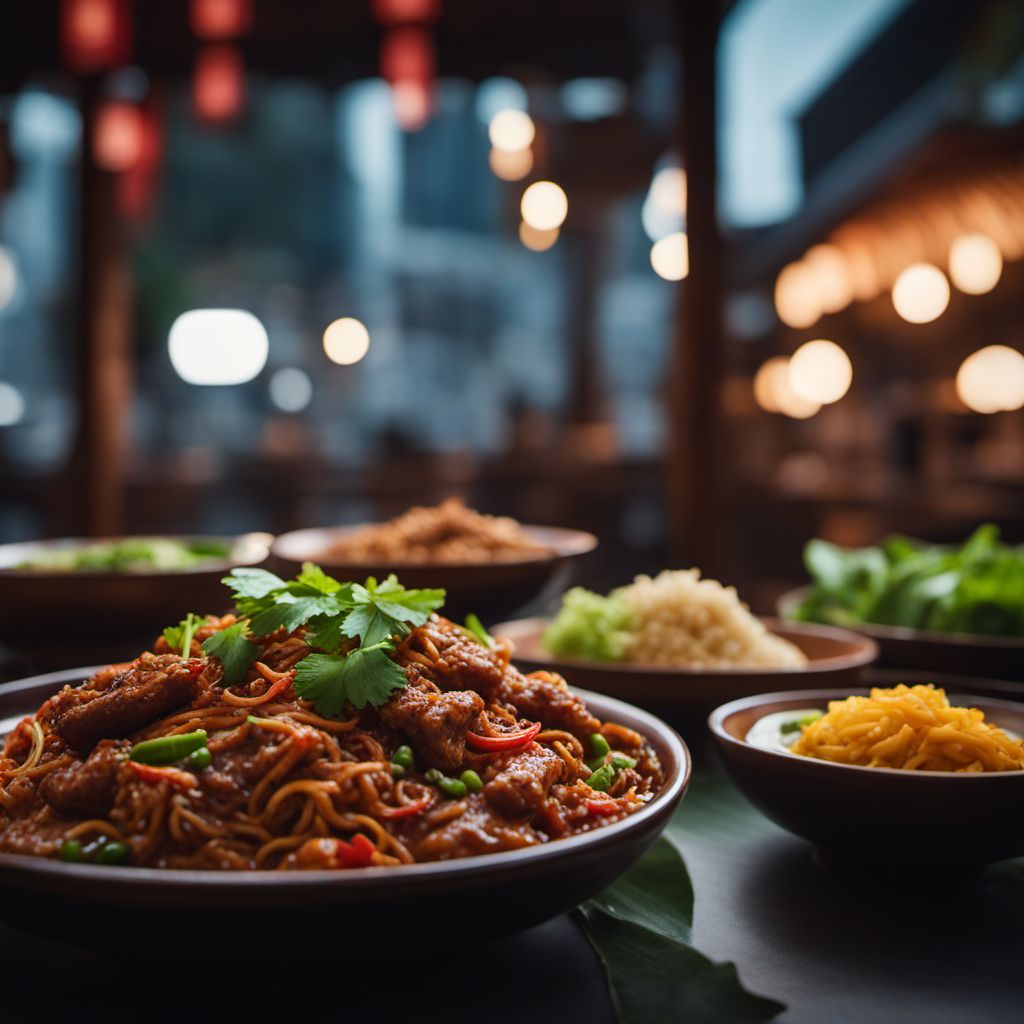
Cuisine
Malaysian cuisine
Malaysian cuisine is a fusion of Malay, Chinese, Indian, and indigenous cuisines. The cuisine is characterized by its use of spices and herbs, such as lemongrass, ginger, turmeric, and cumin, as well as its use of coconut milk and tamarind. Malaysian cuisine is also known for its use of seafood and tropical fruits.
Typical ingredients
Rice, Noodles, Seafood (such as shrimp, squid, fish), Chicken, Beef, Lamb, Tofu, Vegetables (such as eggplant, okra, green beans), Spices (such as lemongrass, ginger, turmeric), Herbs (such as cilantro and mint), Coconut milk, Tamarind, Chili peppers
Presentation and garnishing
Malaysian dishes are often served family-style and garnished with fresh herbs and vegetables.
Malaysian cuisine is a popular cuisine around the world, with many Malaysian restaurants and food stalls in major cities.
More cuisines from this region...
Malaysian Chinese cuisine, Malay cuisine, Eurasian cuisine of Singapore and Malaysia, Arab cuisine, Malaysian Indian cuisine, Peranakan cuisine, Sarawakian cuisine, Sabahan cuisine
History
Malaysian cuisine has a long history, dating back to the ancient Malay kingdoms. The cuisine has been influenced by the cuisines of China, India, and Europe, as well as the indigenous cuisines of Malaysia. The cuisine has also been shaped by the country's location on the spice trade route.
Cultural significance
Malaysian cuisine is an important part of Malaysian culture and is often served at festivals and celebrations. The cuisine is also a way for Malaysians to connect with their heritage and pass down traditions to future generations.
Health benefits and considerations
Malaysian cuisine is generally healthy, with a focus on fresh ingredients and balanced flavors. However, some dishes may be high in sodium or fat.
Malaysian cuisine dishes Browse all »
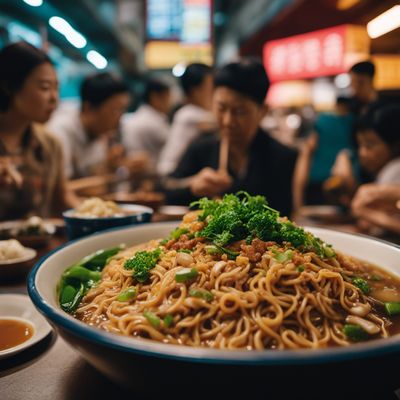
Lor mee
Braised Noodles
Lor mee is a popular noodle dish in Singapore and Malaysia, made with thick yellow noodles in a thick and savory gravy.
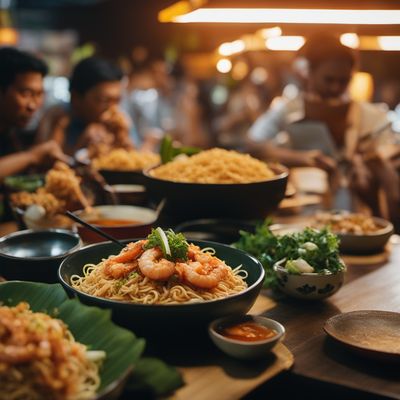
Mee ketang
Mee ketang is a Malaysian noodle dish that is made with shrimp and coconut milk. It is a popular dish in Malaysian cuisine.

Ayam percik
Ayam Percik
Ayam percik is a Malaysian grilled chicken dish that is marinated in a spicy coconut milk mixture. The dish is known for its smoky and slightly sweet flavor.

Roti planta
Roti planta is a Malaysian flatbread that is often served with curry or other spicy dishes.
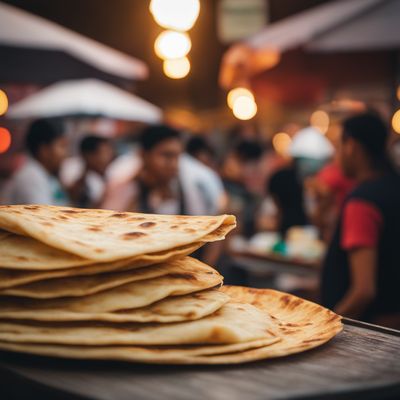
Roti tisu
Roti tisu is a popular Malaysian street food that is made from a thin, crispy crepe that is rolled up into a cone shape. It is often served with a sweet or savory filling, such...

Soup tulang
Malaysian bone soup
Soup tulang is a traditional Malaysian soup that is made with beef bones. It is a flavorful and nutritious soup that is perfect for a cold day.
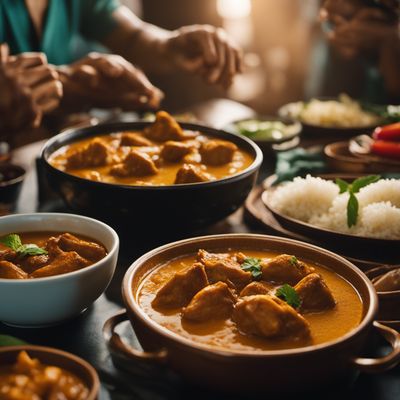
Kari ayam
Chicken Curry
Kari ayam is a traditional Malaysian curry dish made with chicken and a blend of spices.
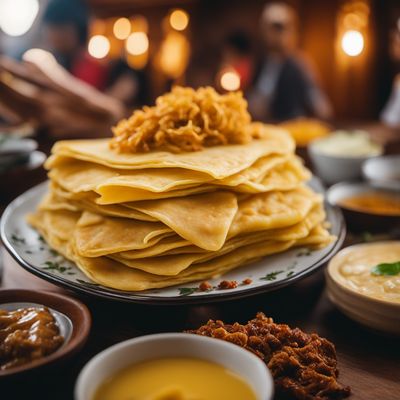
Roti jala
Roti jala is a traditional Malaysian dish made with a thin, crepe-like pancake. It is often served as a side dish to curries and other spicy dishes.
Malaysian cuisine recipes Browse all »
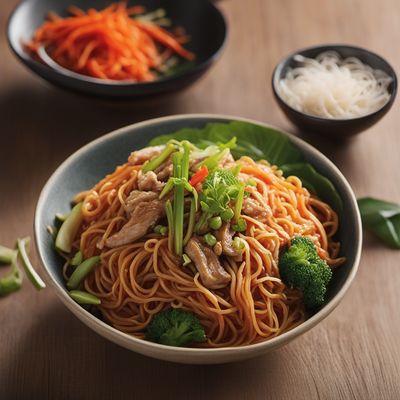
Tuaran Mee with a Twist
Savory Tuaran Delight: A Fusion of Flavors
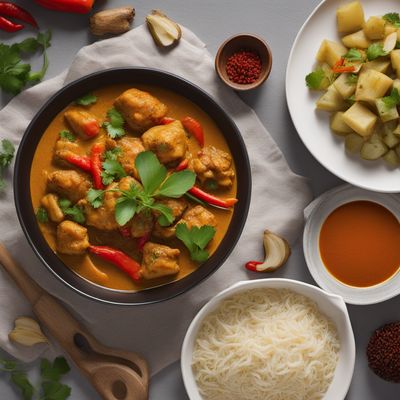
Cincin Curry Delight
Malaysian Spice Infused Curry with a Twist
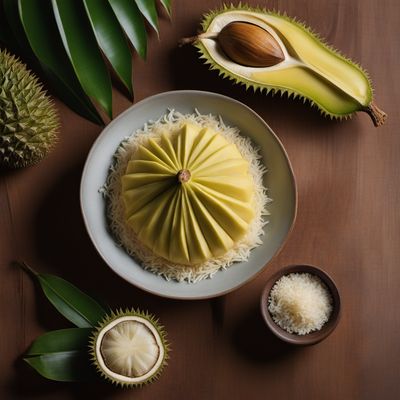
Pulut Durian Delight
Divine Durian Sticky Rice

Coconut Rice with Spicy Sambal and Fragrant Condiments
Malaysian Delight: Fragrant Coconut Rice with Spicy Sambal
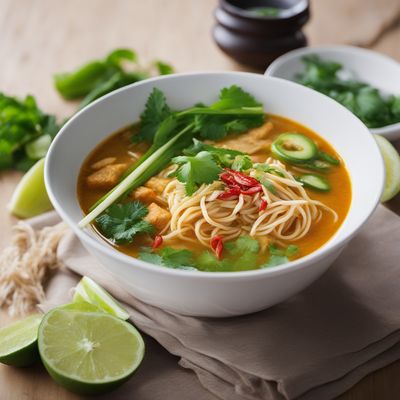
Spicy Coconut Laksa Soup
Fiery Delight: Spicy Coconut Laksa Soup

Kuih Akok Recipe
Coconut Delight: Kuih Akok - A Malaysian Sweet Treat

Malaysian Spiced Bone Broth Soup
Savory Spice Infused Malaysian Bone Broth Soup
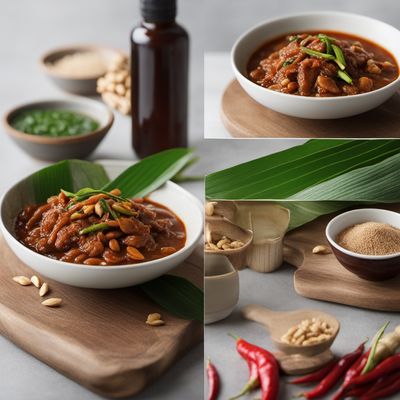
Kelupis with Spicy Peanut Sauce
Savory Rice Dumplings with a Spicy Peanut Twist

Roti Planta with a Twist
Golden Buttered Roti: A Malaysian Delight

Sagu Pudding with Coconut Milk
Tropical Delight: Creamy Sagu Pudding Infused with Coconut Milk
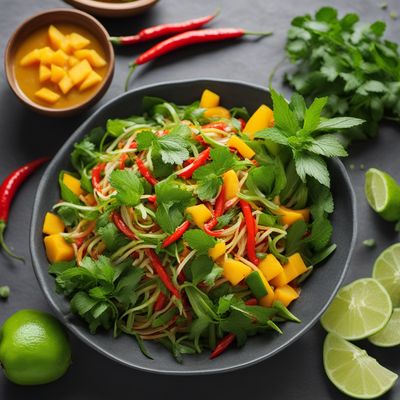
Malaysian Spicy Mango Salad
Tropical Delight: Malaysian Spicy Mango Salad

Penang Hokkien Mee
Savory Delight: Penang's Signature Hokkien Mee